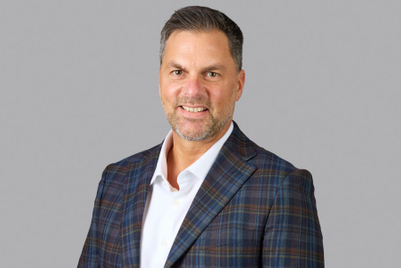
It’s perhaps somewhat trite to describe consultancies as fresh on the advertising and marketing scene. The big players began their incursion into the space some years ago now. Yet people can’t stop talking about them, with many attempting to assess their impact on an already fragmenting industry.
At many agencies, there is more than a sense of trepidation about their plans. But at others, there is a distinctly pragmatic, even quietly confident, attitude. BBH’s global CEO, Neil Munn, falls into the latter category.
He readily admits that “anybody who is trying to eat my lunch worries me,” but the comment reveals his thinking: consultancies are just ‘anybody’—just another of the many challenges facing modern creative agencies. In other words, not something to be particularly afraid of.
“They bring some very powerful skills that we need to respect and we can learn from,” he continues. “But there are two skill sets we possess that they are really going to struggle to ever compete with us on—and that doesn’t mean they haven’t got a strong seat at the table as it is.”
Those two elusive skills, Munn believes, are simplification and using creativity to build emotional resonance around a brand—in effect, the essence of what creative agencies like BBH were established to do. Hardly surprising then, that Munn would tout these as critical differences, but then again, consultancies aren’t exactly synonymous with what Munn calls “emotion, creativity, the intangibles and all the magic”.
“One’s got to be careful about generalising, but most consultancies tend to complicate things rather than simplify them,” he opines. “Of course they wouldn’t accept that, but a thousand boxes with lots of ticks and crosses in them isn’t…”
He starts again. “Quite often we’ve followed in behind consultancies [with a client] and taken [a project] and just distilled it into something digestible and relatable.”

Munn says this is a pillar of what he terms BBH’s core creative competency, something that has been at the centre of the agency since its inception. The same can’t be said of the consultancies, which is where he believes his team has the competitive advantage.
“They’re impressive, formidable players, but it goes back again to our core competency,” he says. “If it is creativity that’s based on simplifying and distilling, and how we can emotionally connect with our target market, I don’t worry about them being good at that. I think that’s quite a significant shift for them.”
However, it’s not as if the consultancies aren’t aware of this, looking at some of the big creative agency acquisitions they have made over the past few years. But again, Munn is unruffled, instead asking the question many others have in response.
“Culturally, how are they going to come together? We’re owned by Publicis Groupe, but I know if a consultancy was knocking on our door and looking to buy BBH, if we were in a different paradigm, that would be my number one question,” he says.
“Culture is a source of competitive advantage. People are fiercely attached to the Black Sheep, and standing out from the crowd, and I’d worry that if we were part of a consultancy, we would lose that edge.”
That edge, Munn says, is ever more crucial as consumers continue to be bombarded with messages across various channels that all seem the same. He calls this the rise of “‘wind tunnel marketing”, with everybody using the same tools and accessing the same data, “putting all of their concepts through this wind tunnel, everything comes out the other end looking exactly the same”.
“There are some clients that feel safe doing that, because they’ve done all of the rational analysis and super-checked it, and they’ve taken all the edges off so it’s nice and neat and tidy,” he describes. “The problem is, no one notices it.”
That is often as much down to the client as the agency. Munn cites scenarios when he’s talked to a client that claims they want to reinvent the category, the agency then puts something on the table to that effect, but “what they actually want is a one-degree shift, and they want to stay safe”.
The other concern is the relentless focus on short-term numbers. Munn believes it is a significant detriment to brand building, which is a long-term project that creates enduring, successful brands.
“The conversation needs to be, ‘what do you want to do over the next two years?’" he says. "I know the next two weeks is very important for your business, your confidence, internal stakeholder management etc. But we can’t just be focused on that, otherwise it’s just creative fireworks that go out and aren’t connected, and there’s no laddering of value. Continuing that analogy, you want a bonfire that’s constantly emanating heat.”


.jpg&h=334&w=500&q=100&v=20250320&c=1)
.jpg&h=334&w=500&q=100&v=20250320&c=1)
.jpg&h=334&w=500&q=100&v=20250320&c=1)



.png&h=334&w=500&q=100&v=20250320&c=1)

.png&h=334&w=500&q=100&v=20250320&c=1)



.jpg&h=268&w=401&q=100&v=20250320&c=1)




